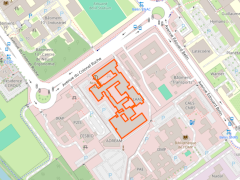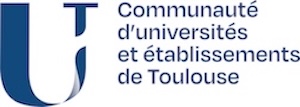Main Research Topics
Control Theory in the MAC team.
Nonlinear and Hybrid Control
Measuring the challenges arising from the discontinuous and heterogeneous nature of dynamical systems involved in major current control applications, the class of dynamical models under study has been enlarged to include time-varying/nonlinear/hybrid models.The objective is threefold. First, the hybrid formalism is used as a new paradigm for representing various challenging characteristics (systems with impacts, systems subject to communication constraints) and to obtain improved analysis results. Second, the aim is to provide new controller architectures (hybrid control systems) in order to overcome the limitations of the usual continuous-time/periodic sampled-data control systems. Interestingly enough and third, the hybrid systems setting may be also very fruitful for studying and revisiting different problems of consensus and synchronization in distributed control of multi-agent systems.
An important field where our team has been contributing significantly already since the early 1990s is that of nonlinear control with isolated nonlinearities (saturations, deadzones, quantization, backlash, for example). More recently the interest is being extended to the more general context of control of networks in the presence of information limitation of various kinds, where the objective is to know to what extent controlled systems are impacted by defects due to digital communications between particular devices of the whole system and take these into account both in the performance analysis and control design.
Control and Uncertainty
Research in robust control systems, or systems affected by uncertainty, started in our team in the late 1980s. For control-oriented studies, the main robust analysis results are now developed in the general setup defined by the topological or quadratic separation. This concept provides a theoretical framework that unifies tools and notions related to internal stability and Lyapunov theory with those from the input-output viewpoint. Moreover, robustness conditions for a large variety of uncertainties and/or time-delay operators (static, time-varying…) may be derived for a wide variety of performances.
A particular attention is also paid to the robustness with respect to time-delays. These time-delays appear notably in the context of systems where the control information is transferred through a network. The robustness analysis is performed using Lyapunov-Krasovskii approaches or within the quadratic separation framework. Besides, since time-delay systems represent a particular class of infinite-dimensional systems, the team also aims at extending their tools and contributions to distributed parameter systems described by partial differential equations.
Optimization and Optimal Control
An original line of research initiated in the late 1990s explores the many emerging issues relating real algebraic geometry, convexity, certificates of positivity of polynomials, representation of measure by its moments, and conic optimization duality. It mainly aims at designing the most numerically efficient hierarchies of semidefinite programming (SDP) or linear matrix inequality (LMI) relaxations of the original problem. Originally designed to address static polynomial optimization problems, the LMI hierarchies have been extended to optimal control of polynomial differential equations subject to state constraints. We are now investigating extensions to stochastic polynomial optimal control and control of systems described by non-linear partial differential equations.
An important challenge when considering the continuous increase of space embedded systems complexity is to propose a corresponding increase in the capability of designing fault-free control systems, maintaining the very high level of security and safety already achieved in existing space systems with unaltered performances. The MAC team proposes several algorithmic solutions to various problems for optimal and robust guidance and control of aerospace systems. We are typically interested in proposing algorithms that are numerically robust and which rely on efficient, reliable and safe numerical methods. In this context, the problem of validated computations and certification of the developed numerical algorithms constitutes a natural extension of the historical research themes of the team. The goal of validated/rigorous computing is to benefit from the speed of numerical approximate computations, yet to be able to bound all rounding or method errors involved.












